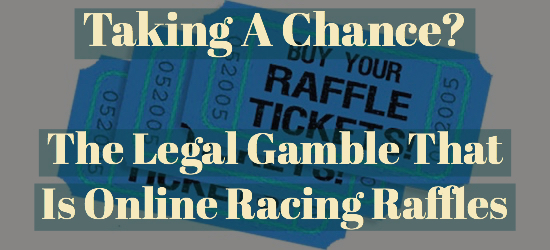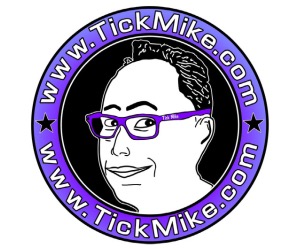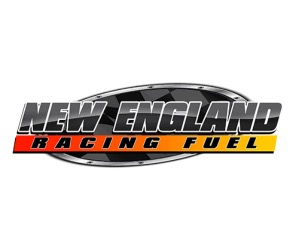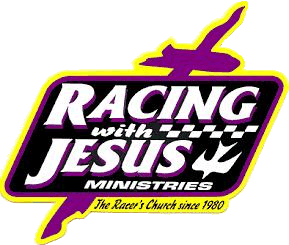
It’s become all the rage across the spectrum of short track racing.
Don’t want to sell your race car or race team or race equipment the old fashioned way? Then how about having a raffle?
Spend enough time on social media perusing the channels of short track racing and you’ve certainly seen one of these raffles over the last year. Probably more likely you’ve seen one every couple of weeks.
From full race teams, to single race cars, to race car haulers and all other forms of racing equipment, someone has launched a raffle for it in the last year online, typically done through Facebook.
On paper it sounds like a pretty simple deal. Race car owner deems his car is worth $10,000. Race car owner offers 100 raffle tickets for $100 each through a social media posting. Once the 100 tickets are purchased race car owner draws a winner. Entrants get the chance to win a $10,000 car for just a $100 investment and the car owner gets the price he wants for his equipment. It’s all done right out in the open publicly for the whole world of Facebook to see.
Simple, easy and fun for everyone right? Also, illegal.
According to The Office of the Attorney General in Connecticut, operating an online raffle for profit is considered an illegal gambling enterprise and defined as “professional gambling”.
Connecticut General Statutes section 53-278b deems that overseeing an online raffle is a Class A misdemeanor punishable by up to a year in prison and a $2,000 fine.
Participating in an online raffle by purchasing an entry is also defined as illegal gambling in Connecticut and is a Class B misdemeanor punishable by up to six months in jail and a fine of up to $1,000.
“I wouldn’t think it’s illegal,” longtime local racing team owner Stu Fearn said. “… I’d just think it’s a little bit of a game of chance. I don’t really have a problem with it. But I think it’s a good public service announcement because I just don’t think people even know anything would be illegal with it.
“Maybe the first sentence of the article should be that this a public service announcement. A lot of people are probably going to think you’re being [a jerk], but, this is a good public service announcement for people to know. People should know this. Maybe they should be doing this stuff on a [private] group or something.”
The simple definition of “raffle” is a contest of chance where an individual pays for the opportunity to win something typically of far greater value than the entry fee they pay to be a part of the raffle.
Mention the word raffle and most people think of school or church fundraisers, which in most instances are perfectly legal and also state regulated.
Connecticut General Statutes section 7-172 to 7-185 spells out the state’s rules for operating a raffle. In Connecticut non-profit groups must acquire a state permit to host a raffle. Those allowed to operate a raffle with a state permit include only veterans’, religious, civic, fraternal, educational, and charitable organizations; volunteer fire companies; political parties; and town committees. State law also allows raffles to be “conducted in a town if they are sponsored by the municipality acting through a designated centennial, bicentennial, or any other centennial celebration committee.”
According to Connecticut state law: “To qualify for a permit, organizations … must have been organized in good faith and actively functioning as a nonprofit organization for at least one year prior to applying.”
Ultimately, any “raffle” is a game of chance, or more clearly and legally defined as a “lottery”. Under United States federal law any lottery operated by a private individual or private company is illegal.
Under federal guidelines The Interstate Wire Act of 1961 prohibits individuals from betting or wagering using a wire communication facility for an interstate transmission of bets or wagers. Essentially “buying” an entry to an online raffle and paying for it through any online money transfer system is placing an interstate wager electronically. Violating the federal Interstate Wire Act is punishable by up to two years in prison.
Legally operated raffles are overseen and under the scrutiny of state permitting because there are so many layers of the action which demand regulation and oversight. Obviously that oversight which provides consumer protection doesn’t exist with illegally run private raffles online.
State oversight guarantees that raffles are operated in good faith with declared prizes existing and being awarded. That same oversight doesn’t exist for consumers involved in a private raffle. Should the winner of a private raffle not get their “prize” or be awarded something not to the standard or value that was represented to them, they have no recourse beyond reporting themselves for participating in an illegal raffle.
“There’s no control over it,” longtime local racer Joey Ferrigno said. “Who’s to say you’re going to get what they said you would? Who’s to say that it’s done fairly? When you get a hat full of numbers for a drawing or something like that, how do I know all those pieces of paper aren’t the same thing?”
Connecticut General Statutes section 53-278a defines “professional gambling” as “accepting or offering to accept, for profit, money, credits, deposits or other things of value risked in gambling,” The state statute specifically lists “disposal or sale of property by lottery” by “selling chances” as professional gambling. It defines that someone using a raffle to award an item of value for profit is overseeing an act of “professional gambling.”
Around short track racing channels these days on social media the raffles have become dominated by private individuals using the contests to bring in large profits on commonly used racing equipment.
Earlier this week on a Facebook page called Racers Auction, a Brunnhoelzl brand three pump jack was being raffled off. Thirty-five spots were being sold by the overseer of the raffle for $40 each, which would net $1,400 for the person raffling the item. The same jack could be purchased on Amazon for $870.94.
The same Racers Auction page had posted a pair of Bert brand air jacks for raffle on Dec. 24, selling 100 spots in the raffle for $40 each, netting a total income of $4,000 for the item. The pair of air jacks retail at most outlets for about $2,300.
What many people participating in the raffles don’t realize is that the operators of most online raffles involving new equipment are never actually in possession of the the items they’re raffling. Thanks to the explosion of online retail the whole process is made simple through online shopping.
The operator of the raffle advertises the raffle on Facebook, sells all the spots for the item and collects the money through an online cash transfer system like PayPal or Venmo. In possession of all the money, the operator then can hold the drawing and determine the winner. The operator of the raffle then can purchase the item from an online retailer such as Amazon and have that online retailer drop ship the item to the raffle winner, in most case without paying any shipping costs.
So in the instance of the air jacks as an example, the raffle operator would have collected $4,000 of entry money. They would likely have to pay about $120 in transfer fees from colleting the money through online transfer sources. The jacks can currently be purchased for $2653.12 on Amazon, with additional tax due based on the state where they’re being purchased from. In the end the raffle operator is putting about $1200 profit (minus sales tax) in their pocket for selling an item they never had in their possession and didn’t even have to send to the winner themselves.
Essentially the operator of the raffle – through overseeing an illegally lottery – is collecting a profit for simply posting a stock sales photo of an item on Facebook, collecting money, drawing a random number and making an online purchase.
Facebook will shut down illegal raffles, but operators have found simple ways to skirt the system by avoiding using the word raffle. By using words like auction or giveaway or fundraiser the operators avoid automated detection from Facebook. Raffle operators also will very quickly delete any comments on their pages or postings questioning the legality of the raffles and typically ban any Facebook users from the pages where they host the raffles who ask any questions about legality of the operation.
When the topic of legality is raised away from the actual raffle postings the response by many participants is that it’s essentially a victimless crime. That philosophy and attitude likely born somewhat of the nature of short track racing, which still in many ways has its own Wild West feel of independent oversight within the fence of the sport.
Many see short track racing and the operation of a short track racing team as being in many ways an “under the table” type of hobby. Deals are made every week in the pits for race cars and all sorts and types of racing equipment. And many will say it’s a world where “cash is king”.
Former NASCAR Whelen Modified Tour team owner and certified public account Mike Smeriglio III said he sees well not only the legality issues with operating the raffles, but also the issues that arise with reporting income and the exchanging of money. Smeriglio said he understands the idea that more people look at short track racing as more hobby than business which only helps to cultivate the idea amongst participants that the raffles are just acceptable.
“Because they treat it as a hobby they don’t think there’s any other outside ramifications,” Smeriglio said. “If you’re trying to generate some revenue it’s not a hobby, it’s an income stream and it should be reported. … I think they want to do whatever they want to do regardless of what they think is right or wrong. Everyone wants to win somehow in the sport, so some people want to cut corners and break some laws unfortunately.”




















I was wondering when this would come out – what about the other states? Is CT the only one?
Steve,
All online raffles operated by a private individual, private group or private business are illegal in every state.
From the story: “Ultimately, any “raffle” is a game of chance, or more clearly and legally defined as a “lottery”. Under United States federal law any lottery operated by a private individual or private company is illegal.
All online raffles are illegal in the United States. Beyond that, each state sets its own standards for non-profit raffles and also sets their own standards for criminal liability involved in operating or participating in an illegal gambling venture. This story just defined those laws for the state of Connecticut because it is the primary coverage area involved. Each state has its own regulations to deal with the matter, but there are no states where doing this is legal.
I have a question. Many tracks have a 50/50 raffle. I believe most are organized so half either go to the driver point fund or a charity and the other half go to the purchaser of the winning ticket. How come LEE Oxford and Lebanon Valley has a 50/50 raffle and tracks like Thompson Stafford Seekonk do not? I have seen sone people walk out of Lebanon Valley with over 5k at some of their bigger shows. I always wondered why every track doesnt have one and just assumed it was state laws that dictated whether or not they had one. From this story unless run by a charitable org, it sounds like it is illegal based on US law not state specific law. I typically purchase a few tickets thinking hey I am supporting a good cause. I have never been fortunate enought to walk away with the big prize.
Thanks for covering this, Shawn. I’ve seen recent postings of these types on Facebook, but didn’t really understand all behind it.
CSG,
Depends on the state where it’s taking place and how it is put on. In Connecticut they fall under the same rules explained in the story for having any raffle. Only can be put on by selected non-profit groups and those groups must get a state permit to have the contest and be regulated by state oversight. I can’t speak to how these are operated in other states, but my understanding is that they’re typically overseen by some type of “Auxiliary” association involved with the track that has a non-profit status. In that type of situation the non-profit would be overseeing the “raffle” and then donating “profit” to a driver point fund or charity. I can’t confirm this, but I don’t think there’s any state where the track itself – as a private business – can oversee/operate the 50/50 raffle legally.
Back before social media we wanted to have a raffle to raise money for our race team. Then we found out we needed a permit, (Massachusetts) and talked to a couple law enforcement friends. The idea was quickly dropped. Also, at the time, if a printer got caught printing the tickets for a non permitted raffle he was subject to a $10,000 fine.
Just go 12ni offshore. Everything is legal in international waters.
touchy subject! I made a comment on a FB post and was quickly banned or thrown out of the group. Protecting their profit making interests I guess…
I recently went to a Jack & Jill where there were multiple raffles. Are you saying this would be illegal as well? This happens all over the country and has for YEARS for all sorts of functions including online raffles. If it’s so bad then why hasn’t action been taken on raffles of all kinds? Seems like a deeper topic of discussion to have with a lawyer and not on a blog regardless of how many statutes you can recite.
How entrepreneurial. Some guy named Jonathan Sperring in Williamson, NY who apparently may be a dirt track racer decides to launch a private raffle to make some money. A couple guys in the shop with some chips with numbers on them, a tool chest covered with a wrinkled MAC Tools dust cover, Tupperware and you’ve got a raffle. Hundreds of dollars of profit to be harvested on each item with near zero overhead thanks to Facebook and Paypal. People not only willing to buy numbers in the raffle but willing to see their name posted on Facebook for the whole world to see. Heck you don’t even have to buy the prize until after the raffle and if spots are empty that’s what friends and family are for aren’t they? Where do I sign up?
Thank you Facebook for once again providing the vehicle for mischief along with fake news, deceptive advertising not to mention personal attacks based on lies, blocking opposing views and generally providing a haven for every other sleazy behavior the worst among us can concoct. Right next to all the helpful, noble and well intended advertising and posts. You’re on your own figuring out who the good guys are and what is real.
Any lawyers in the forum? You’ll need one to figure out this mess. They call it the murky world of Facebook raffles. Laws in most States target raffles meant to raise money for worthy causes and non profits. This private, across State lines stuff is not that. Small, low dollar, under the radar stuff with a noble theme in many cases. Hey man I’m just trying to raise money to buy some tires this season.
Don’t like it report it to Facebook. They’re claiming they shut down everything that doesn’t meet their guidelines or State and Federal laws. Ya, right. As far as I can see Mr. Sperring is violating Facebooks rules by showing the raffles on his own timeline and not plastering Facebooks disclaimers all over the raffles he’s doing.
This isn’t about Mr. Sperring. He’s obviously not trying to hide anything.. It’s about Facebook, murkiness, lack of open and honest rules and things falling through the cracks. Frankly I’d rather use the $40 to go out to dinner then take a 2.8% or less chance sending a Paypal account named “paypal me” money in the hope of getting lucky. Then again people do love to gamble so there’s the entertainment value.
Yupper it’s Facebooks wild west we’re in so welcome to Trixie’s High Bar Saloon and Gambling Emporium. Place your bets and take your chances.
Lightsout,
First, if the person operating the raffle was collecting a personal profit from the raffle then it was illegal.
Second, you say “online raffles” happen all over the country and have for years. Where? I can’t tell that I had ever seen someone selling individual chances to win a prize anywhere online before I started seeing these racing raffles regularly in the last year.
Lastly you said: “If it’s so bad then why hasn’t action been taken on raffles of all kinds?”
Facebook actually shuts them down regularly for being illegal so people have learned to use different words to describe them on Facebook, like calling them auctions, or giveaways or fundraisers.
Also, let’s turn it around. In this country if there’s a way to legally make money online people will exploit to the maximum. Don’t you think if it was legal to go to Walmart and buy a TV for $150 and essentially sell it online through a raffle for $250 that everyone would be doing it? If raffling items for profit was made legal tomorrow by the government by Saturday there would be millions of “raffle” companies in business buying items from retail outlets at one price and then reselling them through a “raffle” at a profitable markup.
50/50 Raffles in CT are definitely legal. Hartford Wolfpack runs one every game to benefit their designated charity. Probably just the tracks choice not to run one.
RichC,
Like any raffles in Connecticut, 50/50 raffles operated by a private individual or private business are 100 percent illegal. They can be operated by selected non-profit groups who have a state permit to operate it. I would imagine that some type of legitimate non-profit group affiliated with the Wolfpack is actually overseeing the operation of the 50/50 raffle, not the actual team itself. It is 100 percent illegal for any track in Connecticut (as a private business) to operate a 50/50 raffle.
Many non profits dont get permits and aren’t normally questioned.
It’s super Bowl time and selling squares is illegal but many people do it all over the United States.
Fastang,
In most instances of “selling squares” the entity operating the game is putting all the entry money back into the prize money being awarded. So while it is still “gambling” by definition, there is no entity profiting from operating the game of chance, thus there is no aspect involved of the defined legal definition of “professional gambling”. In the instance of raffling equipment the overseer of the raffle is using the act of a lottery to accumulate a personal profit from operating said lottery. Operator pays $100 for an item then allows 50 people to wager $10 each on a random chance drawing to win that item. Operator of the drawing nets $400 profit on the lottery thus deeming the operation legally as a “professional gambling” operation.
“It’s super Bowl time and selling squares is illegal but many people do it all over the United States.”
Not at all illegal in Connecticut if all the money collected goes to the players and the organizer takes no stake. Same for pools, fantasy leagues, and card games.
It crosses the line when someone takes a house rake or profits from the player’s stakes.
When in doubt, pay an attorney in your state for an hour or so of time to check the specifics of your situation. I belong to a social club that holds a permit to hold 50/50 raffles and is also a Keno and CT Lottery dealer. The same club has legal football, Daytona 500, and World Series pools, as well as card games. Usually the the keys are some sort of relationship between the players, no online action, and all money collected is distributed to the players.
Of course it calls to mind the classic joke:
A city boy moved to the country and bought a donkey from an old farmer for $100. The farmer agreed to deliver the animal the next day.
The next day, the farmer drove up and said, “Sorry, but I have some bad news. The donkey died.”
“Well then, just give me my money back.”
“Can’t do that. I went and spent it already.”
“Okay then, I’ll just take the donkey.”
“What ya gonna do with him?”
“I’m going to raffle him off.”
“You can’t raffle off a dead donkey!”
“Sure I can. Watch me. I just won’t tell anybody he’s dead.”
A month later the farmer met up with the city boy and asked, “Whatever happened with that dead donkey?”
“I raffled him off. I sold a thousand tickets at a dollar apiece.”
“Didn’t anyone complain?”
“Just the guy who won. I told him the donkey died and I gave him his dollar back.”
The difference here in the deep Facebook-type scams is that they sell the chances, make up a “winner’s” name, show a picture of their co-conspirator posing as the “winner” with the item, pocket all the money, never have the prize in their possession, and no-one is the wiser.
Some people just won’t let the law get in their way.
Some people are more equal than others.
🤡🤡🤡🤡🤡🤡 one and all.
Sammi Anderson is doing a $4000 raffle or pushing it for someone else for a couple racing jacks worth considerably less then $4000 with well known drivers signing on. It’s amazing how scant the details are and yet they ask for the Palpal account and send their money in. Nickle and dime stuff is one thing but this is getting into some serious money.Seems really sketchy and is clearly illegal in Ct yet no one seems to care.
Maybe someone should share this with Shawn Monahan and his new ‘win my car’ raffle he’s posting all over Facebook.
Doug,
I can confirm that Mr. Monahan is aware of this story because he called asking me about it not that long ago.
That city boy in the story get serious was talking about learned about that business arrangement at Trump University.